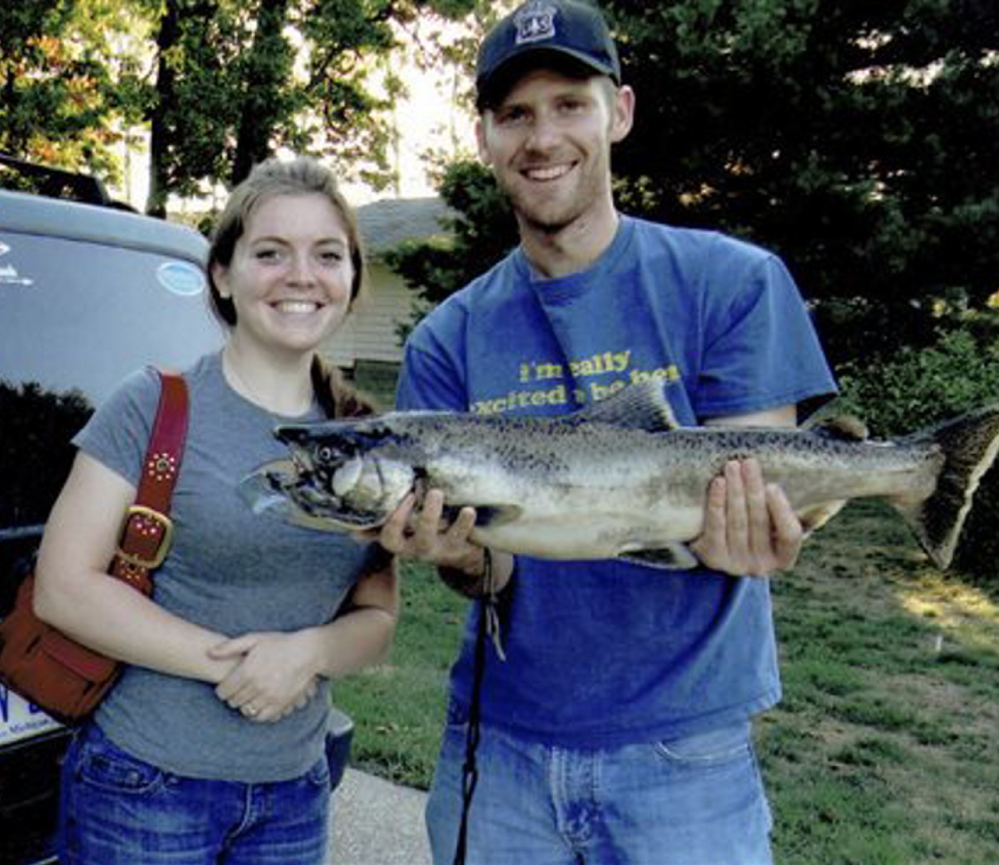TWISP, Wash. — One was a college student for whom fighting fires was a summer job. Another had graduated and wanted to make firefighting his career. The third was already a professional firefighter who had gone back to school to earn his master’s degree.
Tom Zbyszewski, Richard Wheeler and Andrew Zajac – the three men who died Wednesday when flames consumed their crashed vehicle in Washington state – were typical of the wildland firefighters who start out as fresh-faced college kids making as little as $12 an hour then find themselves hooked on the work.
Four others were injured in the canyon, one critically. But their firefighting brothers and sisters had little time to mourn as raging fires forced entire communities to flee their homes 60 miles away.
The complex of fires grew more than 100 square miles in a single day, creating a situation too chaotic to even track how many homes had burned.
“We have lost them, but I don’t know how many,” Okanogan County Sheriff Frank Rogers said. “We’ve got no idea.”
As conditions worsened, emergency officials ordered evacuations in Okanogan, with 2,500 residents, as well as Tonasket, a community of 1,000 people, and its surrounding area.
Not everyone who was told to leave was willing to go.
“I’ve been up for like 40 hours, and I was very nervous, very concerned because (the fire) was going to take everything we have, us and the rest of our friends,” said Al Dodson, who stayed home despite evacuation orders in Twisp, 40 miles west of Okanogan.
Nearly 29,000 firefighters – 3,000 of them in Washington – are battling some 100 large blazes across the drought-and heat-stricken West, including Idaho, Oregon, Montana and California. Thirteen people have died.
There are more firefighters on the ground this season than ever before, and the U.S. government is spending more than $150 million a week on fire suppression, U.S. Agriculture Secretary Tom Tidwell said.
It’s not enough. Additional personnel and equipment were being brought in from abroad, and Washington state officials have called for volunteers who own and can operate equipment such as backhoes and bulldozers.
Some of the firefighters on the ground are following a family tradition, emulating their parents or a favorite uncle. Many are college students who need money, find they like the work, and eventually become leaders on fire crews, said Joe Smillie, a spokesman for Washington’s Department of Natural Resources.
The wages are often about $12 to $18 an hour, and with long days, the pay can add up, he said.
The three firefighters who died were based in Okanogan-Wenatchee National Forest, said forest spokeswoman Carrie McCausland. They belonged to specialized crews that immediately assess fire scenes and report back to commanders.
The crews were in the canyon in two vehicles and on foot when the flames raced toward them. One vehicle made it out safely, but the other carrying the three firefighters who were killed crashed.
Wheeler, 31, the oldest of the three, started fighting fires to save money for college then realized he could dedicate his life to something that had meaning, said the Rev. Joanne Coleman Campbell, his pastor at Wenatchee First United Methodist Church.
He had been fighting fires for a decade. His father, who died when Wheeler was 2, was a firefighter, too.
Zbyszewski also followed in his father’s footsteps. “I fought fires for years and years – never even got burned. I wish it was me. I’m an old man,” his father Richard Zbyszewski said, sobbing.
Zajac, 26, was the son of a Methodist minister from Downers Grove, Illinois. He was a professional wildland firefighter for the Forest Service and received a master’s degree from the University of South Dakota last year.
Send questions/comments to the editors.



Success. Please wait for the page to reload. If the page does not reload within 5 seconds, please refresh the page.
Enter your email and password to access comments.
Hi, to comment on stories you must . This profile is in addition to your subscription and website login.
Already have a commenting profile? .
Invalid username/password.
Please check your email to confirm and complete your registration.
Only subscribers are eligible to post comments. Please subscribe or login first for digital access. Here’s why.
Use the form below to reset your password. When you've submitted your account email, we will send an email with a reset code.